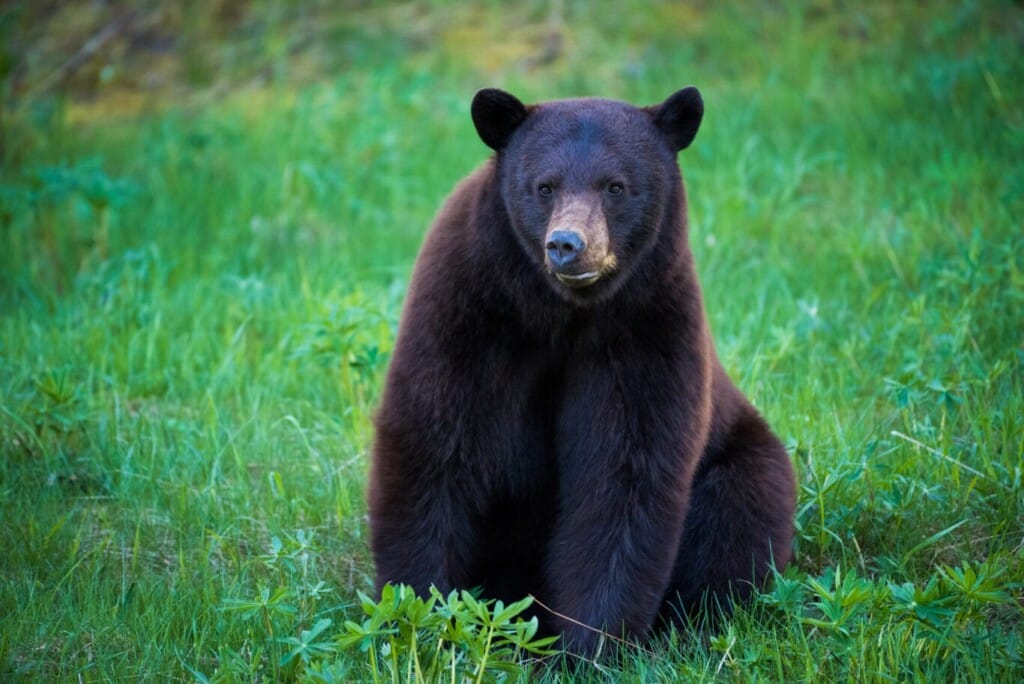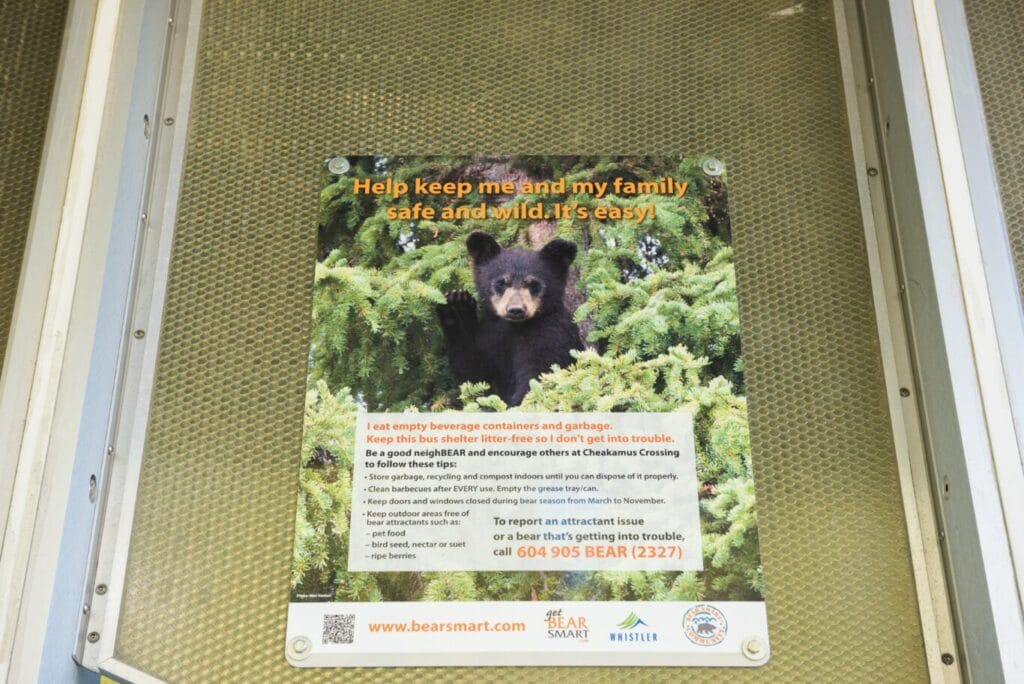
Whistlerites have for many years had a deep and abiding love for bears. Following the tragic death of a sow bear last month, and the subsequent search for several orphaned cubs, we join the community in shared sadness. Losing any bear is tragic; losing a family of bears is heartbreaking.
We also want to send best wishes to the woman who is recovering from injuries after being knocked down and bitten by the sow in her driveway, which led the B.C. Conservation Officer Service (COS) to destroy the bear for public safety.
Overall, Whistler sees relatively few bears killed by the COS every year, particularly for the size of our bear population and its proximity to human settlement. In 2024, of the 303 black bears killed by the COS (PDF) across B.C., four occurred in Whistler.
As a municipality which holds a Bear Smart designation, our primary mandate is to inform and educate, with the ultimate goal of peaceful co-existence between bears and humans. Managing human-bear conflicts is everyone’s responsibility, and it’s one that we as a municipality don’t take lightly. Here we offer some Bear Smart tips and more information on how you can take action.
You can ensure you are helping keep bears safe by properly securing bear attractants, keeping dogs safely on-leash, and knowing what to do when encountering a bear.
- If a bear obtains a human food reward, it will remember that location forever. Do your part by taking the extra time to ensure all scented items are stored properly. These include:
- Food
- Coolers
- Beverage containers (pop cans, beer bottles)
- Garbage
- Pet food/dishes
- BBQ grease.
Bear Smart tips: Ensure you burn off all food particles after each use. Remember to clean the grease pan indoors to avoid dripping. A good rule of thumb: If you think it’s clean enough, clean it again. Bears have a sense of smell that is 2,000 times stronger than humans, and grilled meats will leave a lingering odour if your BBQ is not cleaned properly.
- Oil/fat
- Fish and fish offal
- Birdseed
- Perfumed items (soap, deodorant, toothpaste, suntan lotion, insect spray, hair spray, etc.)
- Citronella candles
- Wastewater from cooking or doing dishes
- Tablecloths
- Pots, dishes, cups, etc.
- Picnics
Bear Smart tips: When throwing a picnic, keep your food within arm’s reach at all times. Bears can be sneaky! If you leave your picnic spot even for a moment, ensure your food is attended to or consider storing it in a bearproof bin or cooler.
For more information on living alongside wildlife, click here.
What do to if you encounter a bear
If you encounter a black bear, it’s important to stay calm. Maintain your distance, back away slowly, and don’t run.
When on the trails, make noise by clapping or singing, especially in tightly treed areas and around corners.
Before leaving the house in the dark, particularly if you’re walking a dog, check outside for any bears in the vicinity to avoid surprise encounters. If you see a bear while walking a dog, pull the leash in tight so the dog doesn’t lunge. Off-leash dogs can provoke wildlife and are prohibited in Whistler, except for designated off-leash areas located in four local parks. Learn more about dogs in Whistler here.
Having bear spray on hand in case of an encounter is another good way to protect yourself in bear country.
For more Bear Smart tips, click here.
Volunteering opportunities in our community
Residents can channel their love for bears by volunteering for local groups dedicated to protecting wildlife. These include Get Bear Smart, the Whistler Wildlife Protection Group, the Coast to Cascades Grizzly Bear Initiative, and the RMOW Wildlife Team, which can be reached by emailing stewardship@whistler.ca.

The RMOW’s role in a Bear Smart community
Since 2011, Whistler has been a Bear Smart community, a provincial designation that requires communities to meet specific criteria that address the root causes of human-bear conflict.
The program empowers local governments, the province, individuals and businesses to work together. Whistler’s Bear Smart status is testament to the community’s passion for bears.
As a municipality, our mandate is to inform and educate. We have a designated Bear Smart employee dedicated to public education through door-to-door outreach, events, and public presentations. We also enforce waste and attractant management bylaws, with our Bylaw team conducting regular neighbourhood inspections.
We also host the Whistler Bear Working Group, a group of local bear group representatives and experts who promote conservation and strategies to minimize human-bear conflicts, advising Council and the Province on local bear-related initiatives. And we provide funding and support for a Wildlife Safety Response Officer, an auxiliary position that works with the COS on outreach and education.
While we sometimes share wildlife messaging and alerts on behalf of the COS, for added visibility, the provincial agency is responsible for responding to wildlife-human conflicts. We defer to their expertise, as well as that of provincial wildlife biologists, on wildlife management.
Whistler’s Bear Smart status also allows the COS to employ more progressive bear management policies, including non-lethal management training programs and public education initiatives.
Of course, even one bear killed is too many, and protecting Whistler’s bears relies on early intervention by the COS, which gives officers a better chance to use negative reinforcement strategies, such as hazing. Call the COS RAPP line to report wildlife-human interactions where public safety may be at risk at 1-877-952-7277.